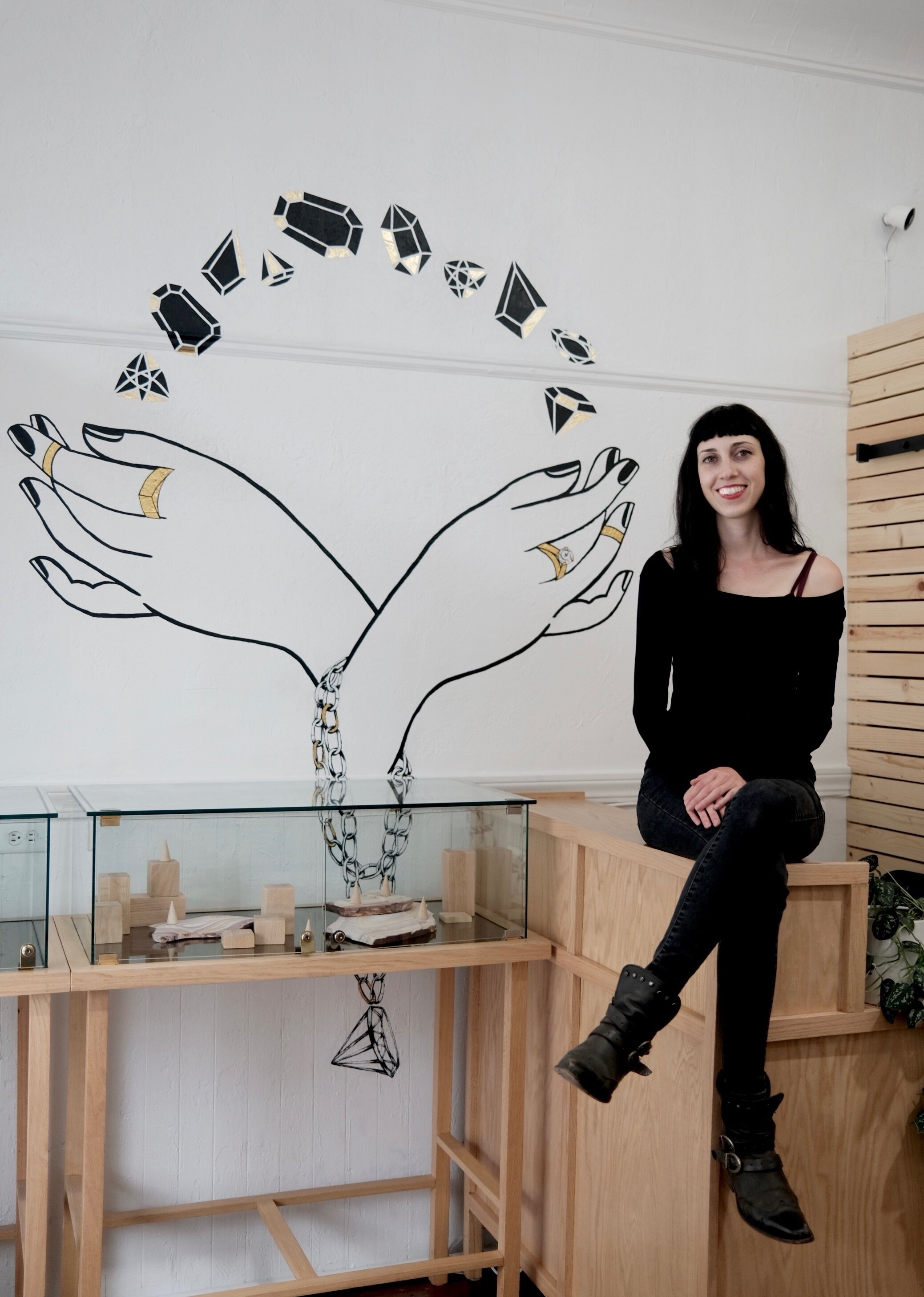
Therapy for
Social Anxiety
LOS ANGELES, CALIFORNIA & ONLINE
Put Social Anxiety in the Rearview Mirror
Social anxiety is near universal, but did you know it can be greatly reduced? Past events, stress, or lack of emotional support may cause your nervous system to respond to people generally as a threat. When that happens we can become paralyzed by fear, and most of your brain and body feel like they go offline.
Thankfully, socially anxiety responds extremely well to somatic therapy. In just a few sessions, most clients are typically able to feel some change, and relief from their symptoms.
Common Symptoms of Social Anxiety
Psychological
Intense fear of social situations
Anticipatory anxiety
Performance anxiety
Excessive self-consciousness
Negative self-evaluation
Rumination
Difficulty making eye-contact
Impaired cognition
Difficulty accessing memory and forming new memories
Hypervigilance
Avoidance
Physiological
Hyperarousal
Increased heart rate/palpitations
Shortness of breath
Dry mouth
Excessive sweating
Trembling or shaking
Dizziness or light-headedness
Digestive issues
Muscle tension, aches, pains & numbness
Easily-diminished “social battery”
Post-socializing fatigue
Treatment for Social Anxiety
Somatic therapy is highly effective at treating social anxiety, which is an over-sensitivity to people as a source of threat, or a conditioned fear response.
Social anxiety affects our access to memory, cognition, emotional information, and creativity. It causes excessive self-consciousness which prevents us from noticing cues of safety in others, for example a smile or an encouraging gesture. Social anxiety also takes away our ability to store new memories or to learn, for example, a new name.
We show you practices that support nervous system to discharge anxious energy from your body, bringing you back to a restful, parasympathetic state, or what is known as “regulation.” We then help you to exposure yourself gradually to social situations using the practices you have learned until your body learns that you are now safe and able to deal with situations as they arise.
Along the way, we may need to unburden some old traumas that live on in your nervous system as a sensitivity to people as threat. To do this, we need to meet and befriend the protective parts that over-react to social situations. With more understanding and acceptance, we help these parts calm down and start to work as a team. We show them that you can now handle yourself in social situations, so they don’t need to take over.
Lastly, we help you build a personalized tool-kit for managing your anxiety for whenever it does show up again, so that you never have to worry about it ahead of time.
FAQs
-
Somatic therapy works from the position that the body keeps the score. Like thinking, talking can circle endlessly without shifting underlying patterns. Somatic Therapy slows things down and surfaces information that the deeper nervous system is trying to communicate. This information comes in the form of pain and sensation, emotions, anxiety and energetic shifts, body language, facial expressions, tensions, bracing patterns, and micro changes in breathing, heart rate and other physiological markers. With a good somatic therapist, you feel deeply felt and attuned to and absent parts of the nervous system come online. It can feel like coming back to life or getting your bounce back or being high on life. Often the work is slow, meditative, and uncomfortable at first, but the changes are undeniable and soon your body looks forward to it.
We usually provide a mix of both talk and somatic therapy and find that they complement and support each other. Often the talk therapy contextualizes and maps out your situation and allows you to feel deeply understood. Then at the right point, somatic work helps to shift and transform your nervous system to reach a new more vital, secure, and resilient equilibrium. This transformation in turn feeds back into talk therapy, where new insights and new meanings emerge.
Book a free consult, and we can discuss your situation.
-
Yes on all counts!
Here is a summary of the research on SE.
"An RCT conducted by Brom and colleagues (2017) indicated that after participating in 15 weekly sessions of SE®, participants reported a significant decrease in the severity of PTSD symptoms and depression."
And here is a metastudy of the research on EMDR.
"Twenty-four randomized controlled trials support the positive effects of EMDR therapy in the treatment of emotional trauma and other adverse life experiences relevant to clinical practice. Seven of 10 studies reported EMDR therapy to be more rapid and/or more effective than trauma-focused cognitive behavioral therapy. Twelve randomized studies of the eye movement component noted rapid decreases in negative emotions and/or vividness of disturbing images, with an additional 8 reporting a variety of other memory effects. Numerous other evaluations document that EMDR therapy provides relief from a variety of somatic complaints."
And here is a summary of the research on IFS.
“As a clinical treatment, IFS has been rated effective for improving general functioning and well-being. In addition, it has been rated promising for each of: improving phobia, panic, and generalized anxiety disorders and symptoms; physical health conditions and symptoms; personal resilience/self-concept; and depression and depressive symptoms.”
“The longitudinal randomized clinical study, which involved 70- some patients in an IFS treatment during 36 weeks with periodic follow-ups including 12 months post- intervention, was published in August 2013 in the peer-reviewed Journal of Rheumatology.”
-
Social anxiety tends to respond well to somatic therapy and many clients feel a shift in the first few sessions.
Sometimes we just need a little nudge to get onto a better track and we're able to cope a lot better with a lot less anxiety. In that case, 6 - 12 sessions may be enough to gain a new piece of insight, have a different experience, and apply this to living in a different way and shifting things onto a better track. Often in these cases, clients find therapy so helpful and enjoyable that they continue even after they've resolved what they came for.
Other times, due to life adversity, we have become very set in our ways and our personality structure now blocks what we desire most (love, success, happiness, etc). In these cases we may need to work from 6 months to several years to make a fundamental shift in order to turn things around. In these cases, the work usually takes longer than we would like, but the change is more significant than we anticipate. The benefits from long term work reach into every area of life and compound over the years that follow.
If you’re unsure which type you are, reach out and book a free consult. We can discuss your situation and provide some input.
-
We think the gold standard for somatic-focused work has to be in-person, given the greater amount of information available and the increased potential for somatic resonance and micro-attunements.
That said, a surprising amount is conveyed through the screen. We have seen many telehealth somatic sessions get to a deeply transformational space. Virtual sessions are also more convenient and it's easier to maintain a weekly rhythm, which counts for a lot. We do like it when virtual clients are able to come in occasionally for an in-person session. The connection seems to carry over to on-screen work. We would say try whatever works best for your schedule and see how you find it.
You're welcome to call and do a free consultation to discuss your situation.
-
Some part of you must disagree or you wouldn't be here reading about therapy! That part just needs more support. We become the champion of that part of you that wants things to be a lot better. We've seen many times how getting into the rhythm of therapy and putting an action-reflection loop into place is absolutely transformational. Perhaps the conditions have not been conducive until now. Perhaps the voices of doubt and judgment have just been a little too strong. Perhaps everything you've done up to this point can become the foundation and launchpad for finally breaking through. There's only one way to find out.
Book a free consult, and we can discuss your situation. There is no ongoing commitment and we'll be honest about what we think could be possible for you.
-
We offer a range of fees based on clinician and modality. You can see our fee ranges here. Our fees are competitive against many private practices in California, particularly for somatic offerings. Many of our clinicians have a few sliding scale spots that can lower the fee somewhat in cases of financial need.
If you need a substantially reduced fee, we can recommend low-fee training clinics such as Maple Counseling Center, Antioch University Counseling Center, Southern California Counseling Center, Valley Community Counseling Clinic, Airport Marina Counseling Center, or Counseling West. These can be great options to get started. The main issue tends to be therapist turnover, as therapists complete their training and move into private practice. There is also a high variance between therapists, so you may need to go through several before you find a good fit and then you may lose them after several months. There can also be long waitlists depending on the time of year.
If you would like to discuss your situation and what you can afford at this time, please schedule a free consultation.
-
Yes, we accept insurance as an out-of-network provider for all PPO plans, including: Anthem Blue Cross, Blue Shield, Blue Card, HealthNet, United Healthcare, Cigna, Optum, Magellan, Value Plus and many others, depending on your coverage. We are not in-network or included within HMO plans for any providers.
With PPO, you pay the full fee upfront and your insurance company reimburses you directly.
Beyond can call your insurance on your behalf in order to find out what your coverage would be.
If you schedule a free consult, we can discuss how this would work and any other questions you have about insurance.
-
We have a matching process where you first do a free consultation with an intake coordinator. The coordinator listens to your story, provides some information, and helps to select the best therapist for you. You then get another free consultation with the therapist you select.
Match is based on personality, location, in person or virtual and the approach best suited to your issue. All of our therapists have a foundation in somatic and depth psychologies. Likely you will connect with one more than the others.
We look forward to hearing from you. Book a free consultation now!
Hear What Clients Are Saying
Embark On Your Healing Journey
Contact us today. We have a diverse group of therapists who can provide in-person therapy in Los Angeles and online coaching around the world.
We would be happy to answer your questions and support you as you take your first steps toward a more vibrant and less anxious life.
Beyond Psychology Team

























